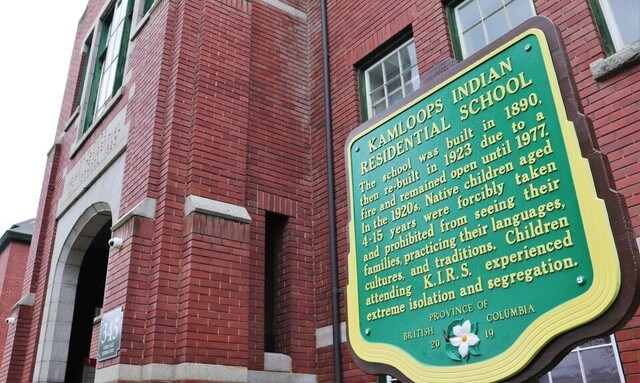The B.C. government is setting aside $1.5 million to enhance Indigenous-led wellness supports for residential school survivors.
The money, part of $12 million promised by the province in June following the Kamloops Indian Residential School unmarked graveyard announcement, will be doled out to three organizations offering help to survivors — the Indian Residential School Survivors Society (IRSSS), Tsow-Tun Le Lum Society and Métis Nation BC.
“It’s so important for Indigenous people to have access to supports they can trust — supports that understand the impact of the residential school program,” Murray Rankin, Minister of Indigenous Relations and Reconciliation, said during a news conference on Monday.
IRSSS executive director Angela White said her organization’s crisis line dealt with a flood of phone calls in the days and weeks after the Tk’emlups announcement.
“Our numbers speak for themselves. I think it was two days after and for the next month and a half... between 8:30 [a.m.] to 4:30 [p.m.], our call line was inundated with 500 to 600 calls over those hours,” she said.
“It has now subsided, but it just goes to show the need — how necessary these places are.”
According to Rankin, IRSSS is in line to receive $750,000, while Tsow-Tun Le Lum Society will receive $500,000 and Métis Nation BC will get $250,000.
IRSSS plans to use the money to enhance its 24/7 cultural support line, hiring counselling and support staff. Tsow-Tun Le Lum Society plans to use its funding to provide more in-person supports and Métis Nation BC will expand its Métis Counselling Connection program.
“My heart goes out to all of the Indigenous communities and the survivors and intergenerational survivors of the residential school system,” said Sheila Malcolmson, Minister of Mental Health and Addictions.
“I’m grateful for this partnership that provides urgent Indigenous-led, trauma-informed supports to foster wellness and resilience.”
On May 27, Tk’emlups te Secwepemc Chief Rosanne Casimir announced the discovery of more than 200 unmarked graves on the grounds of the former Kamloops Indian Residential School.
B.C. was home to 18 residential schools and a number of so-called “Indian hospitals.” The last residential school to operate in the province was St. Mary’s, in Mission, which closed in 1984.




